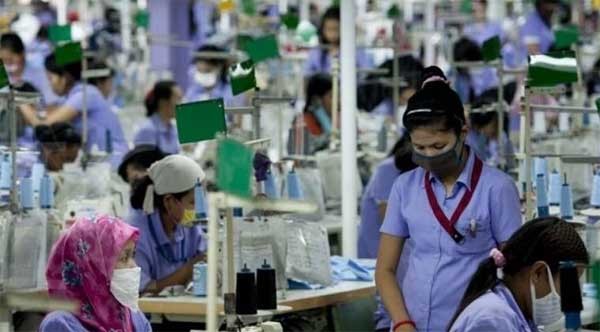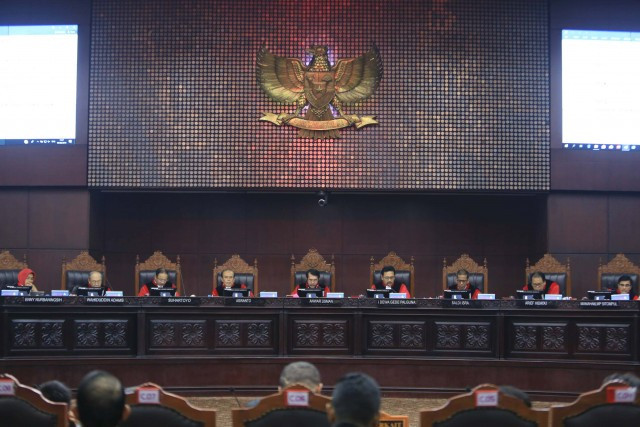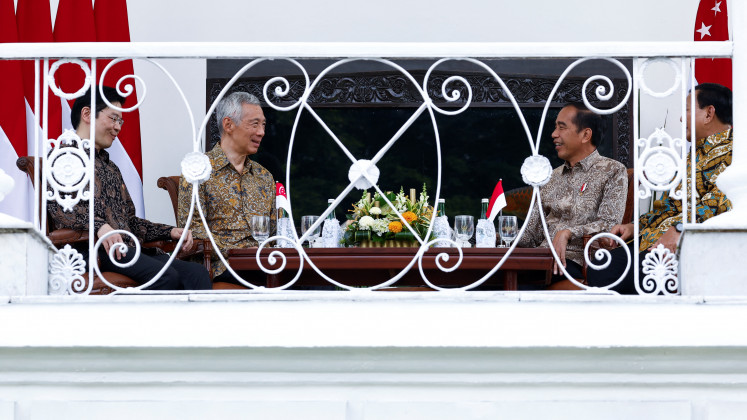Why middle-class workers should unionize
To quote a labor union activist, “Labor unions are not perfect, but they are the best thing the working class has.”
Change Size
 President Joko "Jokowi" Widodo has called late last month for more labor-intensive projects to improve the purchasing power of people. (Antara/Rosa Panggabean)
President Joko "Jokowi" Widodo has called late last month for more labor-intensive projects to improve the purchasing power of people. (Antara/Rosa Panggabean)
M
ore than annual mass rallies to commemorate International Labor Day on May 1, the event should serve as a reminder that the country’s labor movement has consistently sought to protect workers’ rights.
The movement finds its relevance in the current government’s economic policy, which gives priority to investors through a series of economic policy packages intended to convey a message that doing business in Indonesia is getting easier. The pro-investment approach potentially threatens workers’ protection, which is already weak.
Indeed, in a developing country like Indonesia contestation, rather than mutual symbiosis, has always marked relationship between investment and labor protection.
Labor Day is a remembrance of the labor union’s success to eradicate exploitation of workers and set up proper working conditions such as work time of eight hours a day and 40 hours a week, job safety and fair wages and benefits. Workers across the world, especially those in the formal sector, both white collar and blue collar alike, enjoy better working conditions guaranteed by the law.
Labor Day should also remind middle-class workersthat they owe their improved working conditions to the labor movement. For that reason there is a need for middle-class workers to unionize and develop a strong, elegant and effective labor movement.
The urban middle-class in Indonesia consists of white-collar workers, who are characterized by high education and skills and aptitude in communication technology. These workers are reluctant to be called labor and prefer to be identified as executives or officers.
They are represented by, among others, professionals in the financial sector, hotels, telecommunications, IT and media. Some, if not most, of them actually do not completely understand their rights as workers and even do not know that their rights are protected by the state. Many of them are unaware of the law that protects them and their rights either.
A research conducted by AKATIGA & OPSI in 2011 in the banking sector and a study jointly conducted by the Department of Management at the University of Indonesia’s School of Economics and AKATIGA in 2013 in the telecommunications sector discovered that white-collar workers were also vulnerable and not spared from the practice of flexibilization of labor, which also means lack of security. This phenomenon was found even at the managerial level.
A study by the Association of Independent Journalists ( AJI ) in 2015 for print and electronic media workers confirmed this condition. Labor flexibilization creates contractual working relations and outsourcing that ruin job security.
White-collar workers often do not feel the need to unionize, or to borrow the words of journalist Satrio Arismunandar ( 2012 ), they are deceived by the false concept and pride of “the professionals”, considered higher than blue-collar workers. They tend to view labor unions as not for “the professionals”.
In reality, white-collar workers are as susceptible to mass lay-offs as their blue-collared brethren. Over the last two years alone, as reported in various media, falling oil prices and global economic slowdown have led to mass lay-off in the oil and gas, banking and pharmaceutical industries.
What is happening today is reminiscent of the Asian financial crisis that severely hit Indonesia almost 20 years ago. It was only then that white-collar workers turned to the labor unions asking for help to reinstate their rights, because they did not know the mechanism. As time has gone on, however, the interest in unionizing has faded in favor of the false pride of “the professionals” that need no union.
The nature of working relations in place in Indonesia is both flexible and individualistic. These characteristics entail worker vulnerability. Given these conditions, the union as a workers’ collective power is very relevant to resist the susceptibility.
Labor unions fight not only for worker’s rights but also human rights. The Universal Declaration of Human Rights Chapter 23 states that everyone is entitled to work, fair remuneration, life and social security, as well as the right to become a member of a labor union to protect his or her interests. As Indah Budiarti from Public Service International puts it, labor unions are a significant force of democracy and collective power and workers are an economic power.
Given that the blue-collar labor movements in Indonesia right now tend to exclude “the professionals” and create antipathy, particularly among employers, it is time for the white-collars to participate in and add to the labor movement. Their involvement in the organized movement may help breed public sympathy and empathy.
To quote a labor union activist, “Labor unions are not perfect, but they are the best thing the working class has.”
***
The writer is a researcher at the AKATIGA-Center for Social Analysis in Bandung.
---------------
We are looking for information, opinions, and in-depth analysis from experts or scholars in a variety of fields. We choose articles based on facts or opinions about general news, as well as quality analysis and commentary about Indonesia or international events. Send your piece to community@jakpost.com.









